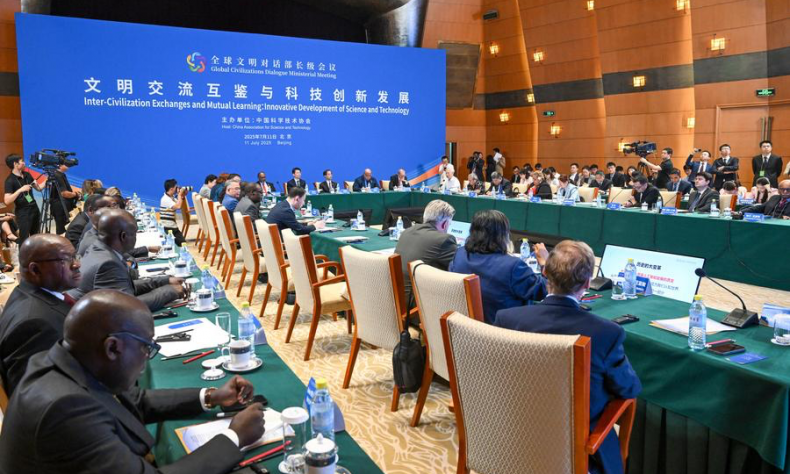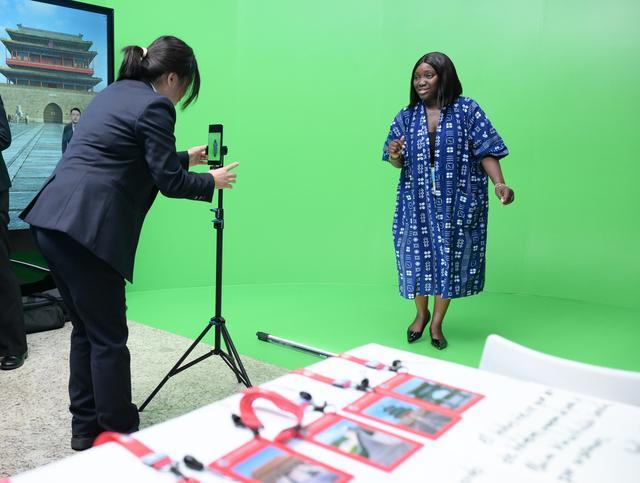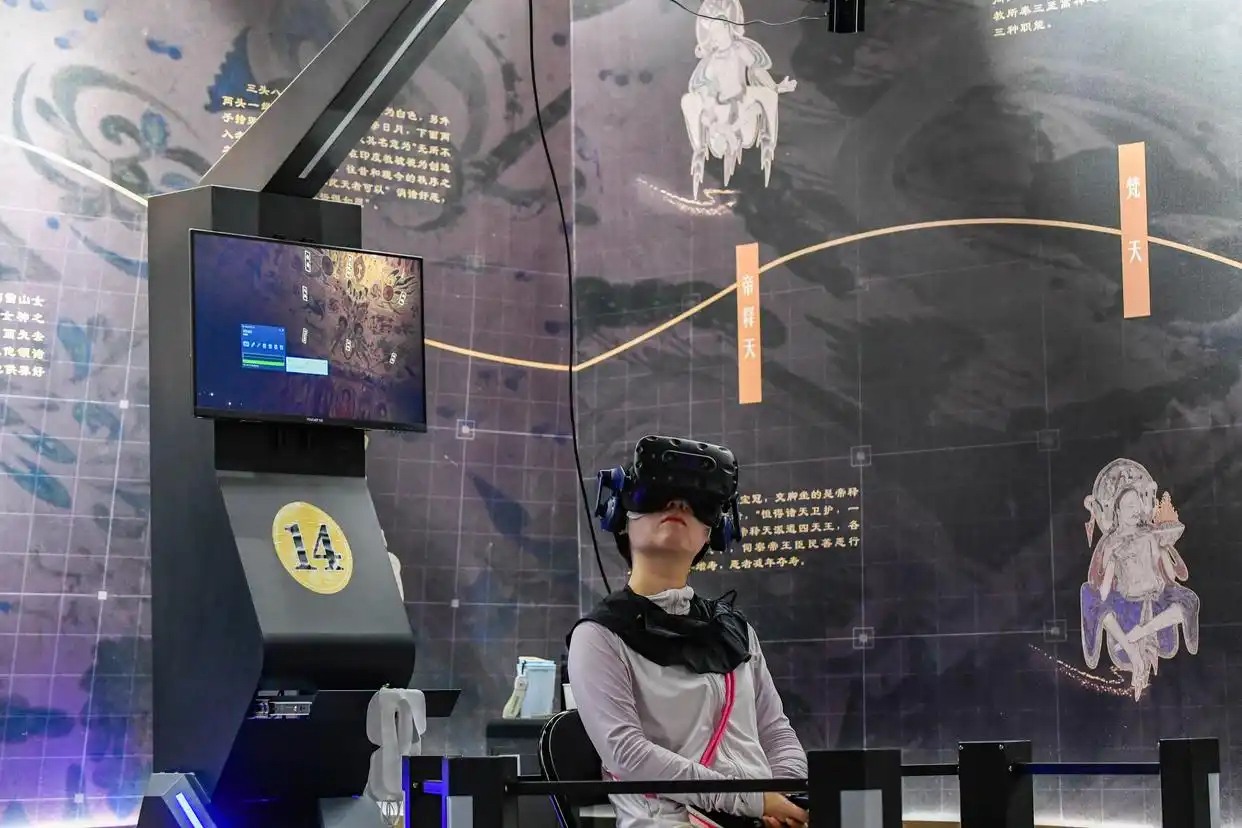AI for Good, for All

By convening this Forum, we hope to join all countries in re-examining the opportunities and challenges facing human civilization in the age of AI, so that different civilizations may deepen mutual understanding through dialogue, build consensus through interaction, and shape the future through cooperation.
At the two-day Global Civilizations Dialogue Ministerial Meeting held in Beijing in July, opportunities and challenges for human civilization in the age of Artificial Intelligence (AI) became a hot topic among attendees. During the sub-forum themed on “Inter-Civilization Exchanges and Mutual Learning: Innovative Development of Science and Technology,” participants explored the profound impact of emerging technologies on global civilization in the age of AI. Key discussions focused on how AI is reshaping the trajectories of cultural inheritance and innovation, and emphasized the pivotal role of youth in fostering inter-civilization dialogue.
Bridging the divide
“In the age of AI, humanity stands at a crossroads where our very modes of existence, social structures, and civilizational forms are being reshaped. The ways we live, work, and acquire knowledge are undergoing tectonic shifts – changes that present both historic opportunities for inter-civilization exchange and formidable challenges,” said He Junke, executive president and chief executive secretary of the Secretariat of the China Association for Science and Technology (CAST), in his keynote speech.
He stated that humanity must sustain inter-civilization exchange so that AI can draw nourishment from cross-cultural knowledge, generate fresh insights, and transcend cultural biases by respecting the diversity of civilizations.
Bjørg Sandkjær, assistant secretary-general for policy coordination in the United Nations Department of Economic and Social Affairs (UNDESA), echoed his remarks, underscoring that effective AI governance must be rooted in transparency, accountability, and the participation of all. “We live in an age of both yawning digital divides and rapid AI advancement. Embedding AI into every nation’s development agenda is not charity; it is justice,” she noted.
Established in 1968 and operating under the auspices of UNESCO, the World Federation of Engineering Organizations (WFEO) represents more than 3,000 engineers from 100 countries. As the global voice of the engineering profession, WFEO is committed to advancing innovation that is ethical, inclusive, and aligned with the United Nations Sustainable Development Goals.
In 2024, the WFEO proposed the Engineering Capacity Building for Africa Programme (ECBAP) to the China Association for Science and Technology (CAST).
As a concrete action to implement the China-proposed Global Development Initiative and the China-Africa cooperation vision, the decade-long program, set against the backdrop of global digital transformation, focuses on the significant application of AI in the engineering field. It aims to enhance engineering education capabilities in Africa, conduct continuous professional development skills training, and promote technology transfer and innovation. It aspires to train 100,000 African engineers within a span of 10 years.

From May 7 to 8, 2025, the ECBAP made its debut at the 10th Multi-Stakeholder Forum on Science, Technology, and Innovation for the Sustainable Development Goals Forum held at the UN Headquarters in New York. It adopts a collaborative model based on demand-driven, locally implemented, and academia-industry coordinated strategies. Through sustainable mechanisms such as government-authorized engineering certification and a reasonable training fee system, ECBAP provides a replicable solution for engineering capacity building in Africa.
Navinchandra B. Vasoya, executive council member of the WFEO, quoting the great Chinese thinker and educator, Confucius (551-479 BC), commented, “Wisdom, compassion, and courage are the three universally recognized moral qualities of humanity.” He added, “Let us take this wisdom as our guide to shape AI so that it empowers our intellect, grows ever stronger, and becomes ever more humane and culturally inclusive.”
Enriching civilization
“AI is transforming the stories we tell about who we are, where we come from, and where we are headed,” said Bjørg Sandkjær. She indicated that AI can become a powerful force for cultural continuity and preservation as we can breathe new life into traditional heritage by resorting to AI tools to make it remembered across generations.
In this regard, China has abundant experience to share. Li Mingxiang, vice minister of the International Department of the Central Committee of the Communist Party of China (CPC), pointed out that in recent years, China has been vigorously advancing the integration of culture and technology, seeking to harness AI for the preservation and creative transformation of its outstanding traditional culture, thereby offering reference models to the international community.
For instance, China’s Dunhuang Academy has employed AI to great effect in enhancing the conservation and utilization of cultural relics, while the blockbuster video game Black Myth: Wukong has harnessed AI-driven technologies to stunningly re-imagine a classic mythical world, sparking a global “Journey to the West” craze and becoming a paragon of cultural innovation. These innovative uses of AI help humanity re-imagine global history —not as a static archive, but as a living source of mutual learning among civilizations.

An empowered future
“By convening this Forum, we hope to join all countries in re-examining the opportunities and challenges facing human civilization in the age of AI, so that different civilizations may deepen mutual understanding through dialogue, build consensus through interaction, and shape the future through cooperation,” Li Mingxiang said.
He stated that the Global AI Governance Initiative, announced by Chinese President Xi Jinping at the third Belt and Road Forum for International Cooperation in Beijing in October 2023, champions a people-centered philosophy and the principle of “AI for good,” advocating that AI must serve human well-being. It offers China’s blueprint and wisdom for governing AI on a global scale, underscoring China’s approach of openness and inclusiveness in global cooperation and development.
“In the AI age, any serious conversation about human civilization must center on the youth,” Bjørg Sandkjær noted, pointing out that today’s young people are the generation most affected by AI in education, employment, civic participation, and even identity.
Governments must equip young people with digital skills and AI ethics literacy, and ensure their participation in decision-making on AI use and governance, so they can autonomously develop technologies that are in tune with their realities, she said.
Furthermore, building bridges of scientific and technological cooperation for inter-civilization exchange requires an inclusive global innovation ecosystem that promotes knowledge sharing and open collaboration, eliminates inequities created by new technologies, and safeguards the development rights of all groups and nations — making technological innovation a process in which all of humanity can participate and from which all can benefit.
“We envision a future where a young person in Nairobi, Dhaka, or São Paulo has the same opportunities as peers in Shenzhen or Silicon Valley to advance the frontiers of AI,” Bjørg Sandkjær concluded on a hopeful note.
 Facebook
Facebook
 Twitter
Twitter
 Linkedin
Linkedin
 Google +
Google +










